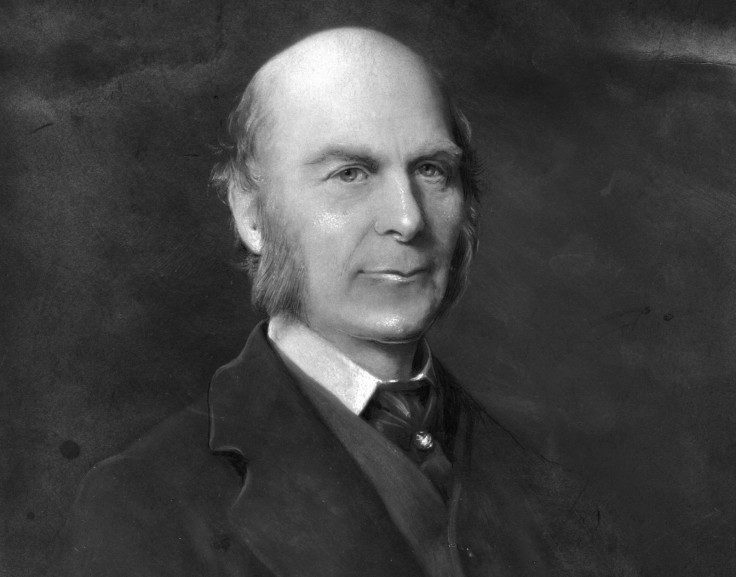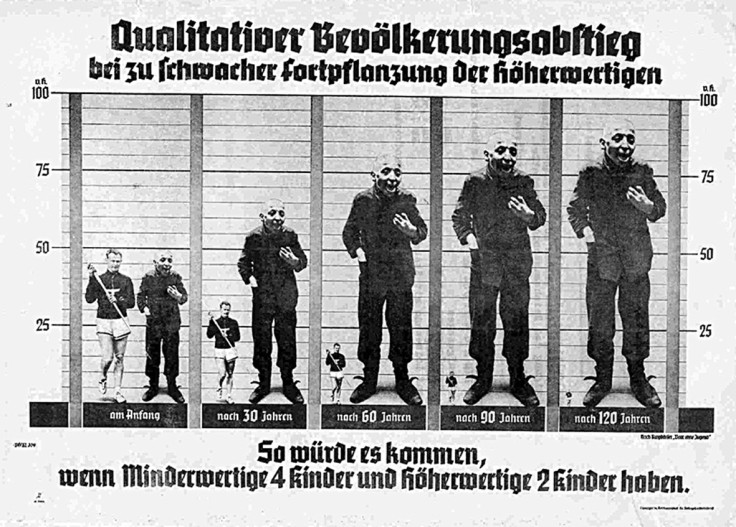The dark history of how eugenics was developed in Britain

KEY POINTS
- British scientist Frances Galton coined the term for the deadly social engineering theory.
- UCL was the place where "eugenics was legitimised as a science".
- His data bleeds into modern medicine - including the work of Marie Stopes.
University College London (UCL) recently launched an urgent investigation into reports that a senior academic secretly ran a conference on eugenics at the institution for three years. As an exhibition at the prestigious institution reveals, the UK and UCL have ties with the discredited 19th century pseudoscience that cannot be ignored.
Most often associated with Nazi atrocities, eugenics was a theory developed by Victorian scientist and statistician Sir Francis Galton. Inspired by his cousin Charles Darwin and his theory of evolution, Galton devoted his career to the study of hereditary and biological variations in the human species.
In his 1896 book Hereditary Genius, Galton, who was labelled the "father of eugenics", theorised that it was possible to breed "superior" people, while simultaneously preventing procreation between those deemed to be biologically inferior and "feeble-minded".
That included the poor and other races. A grading system ranked Athenians above the English, and Australian Aborigines last - one "grade" below Africans. Such social engineering, he believed, would improve the "quality" of the human race.
Now cast aside as not only racist but scientifically inaccurate, his work was used as the basis of measures including compulsory sterilisation in European countries and the US in the early 1900s, and the murder of thousands of disabled people in Nazi Germany in the late 1930s as part of the Holocaust.
When he died in 1911, Galton endowed UCL with his personal collection of archives, and a bequest which funded the country's first professorial Chair of Eugenics. The Galton Lecture Theatre at UCL still bears his name, and mathematician Karl Pearson and archaeologist Flinders Petrie later continued his work.
"UCL was the place where eugenics was legitimised as a science," Subhadra Das, the curator of the UCL Galton and Pathology Collections told IBTimes UK. Das has documented the history of eugenics in the UCL walking tour exhibition and podcast Bricks and Mortals, and has worked to shine a light on Britain's dark and rarely mentioned role in the development of these theories.
"I can only speak to my own experience which is that it was never a story I was told at school. Scientific racism as a whole and eugenics in particular were confined to the Nazis," she said.
We don't talk about the rise of social movements in the UK in the 20th century that saw eugenics as a way forward. We don't talk about the sterilisation in the US of 90,000 people, deemed mentally unfit or feeble, without their consent.
"We don't talk about the rise of social movements in the UK in the 20th century, both on the left and the right, that saw eugenics as a way forward. We don't talk about the sterilisation in the US of 90,000 people, deemed mentally unfit or feeble, without their consent. This is not a story that is part of the canon."
Galton's theories are regarded as abhorrent by the majority of people nowadays - as evidenced by the reaction to the secret London Conference on Intelligence at UCL in 2017 which discussed eugenics and whose speakers included white supremacists.

However, as an influential scientist Galton's data bleeds into medicine and science in a way that few people are aware of. This is a reflection of how difficult it is to disentangle a person's work from their morals.
Das gave the example of Marie Stopes. As a Malthusian she believed that population increases at a faster rate than resources can sustain it and campaigned for eugenics and readily available birth control.
"There's a huge amount we can use from the data that was gathered [by Galton]," explained Das.
Marie Stopes was a feminist and racist at the same time
"Scientists will say data is neutral because scientists measure physical traits and genetic material as objectively as possible. But there is no such thing as being objective. Everyone has their own biases and the trick with the data is to critically examine our assumptions as individuals and society, and the biases inherent in that in order to come up with meaningful science and ethically sound science.
"Marie Stopes was interested in the preservation of the white race. She was a feminist and racist at the same time," said Das.
Data used to compile Body Mass Index, widely used to determine whether a person has a healthy weight, and the information which obstetricians use to ensure that babies are the correct weight, all link back to Galton's work.
The Bricks and Mortals exhibition comes at a time when the way society remembers the role of controversial historical figures has sparked intense debate. The controversy has led to protests against statues of imperialists in public spaces, including a monument to Cecil Rhodes at the University of Cape Town that led to the #RhodesMustFall campaign.
At UCL, the BME Student Network last year held protests against the London Conference on Intelligence, and called for the "decolonisation" of the university and the "dismantling [of British colonial] legacy and shaping our institutions and society in a way that is free from white supremacy in all its pervasive forms," student news site The Tab reported.
The way that science and the history of science is taught is that scientific development is a series of accomplishments by a series of lone genius - usually white and male. That's not the case
Das refused to comment on the secret conference but said: "My position is that we shouldn't change the names of the lecture theatres and buildings until such a time as those stories about them or behind them and the men and women become [part of the] canon.
"If we change the names then history is whitewashed and there is nothing to talk about. Even though I don't find it edifying to have buildings named after scientific racists, the absence of names at this point in time won't help.
"I want to look at history and the history of science and to bring in the idea of nuance," she added. "The way that science and the history of science is taught is that scientific development is a series of accomplishments by a series of lone genius - usually white and male. That's not the case.
"It's not only a misrepresentation of history but also the world we live in. The world is much more complicated than that.
"I'm not being an apologist for Galton. But I can't just say there are people in white hats and black hats. That's not a sophisticated or useful way to look at the world.
"The current trouble is to do with black and white analogue view of the world. If we appreciate things are complicated we could move forward."






















